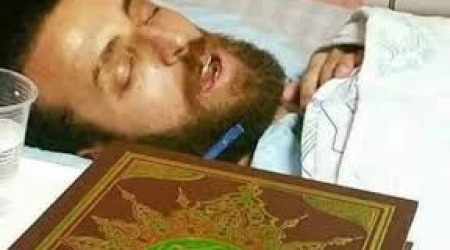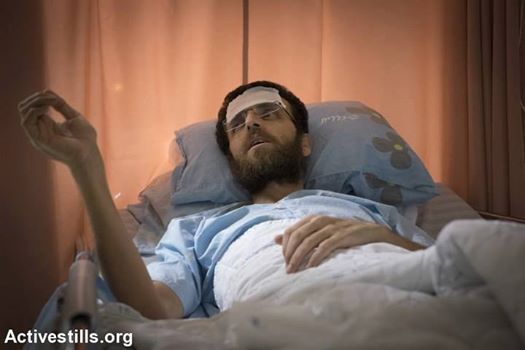-
Children living in closed military zone enjoy day of fun under the shadow of the occupation
13th February 2016 | International Solidarity Movement, al-Khalil team | Hebron, occupied Palestine On February 13th 2016 Youth Against Settlements in occupied al-Khalil (Hebron) organised a children’s activity in front of Shuhada Street checkpoint. Around 50 children from the neighbourhoods located on the H2 (entirely Israeli military-controlled) side of the checkpoint – Tel Rumeida and […]
-
Mohammed al-Qiq on the verge of death: sign Avaaz petition to demand his freedom NOW!
12th February 2016 |International Solidarity Movement, Ramallah Team | occupied Palestine 33-year-old journalist, Mohammed al-Qiq, is on his 80th day of a hunger strike in protest against his imprisonment without charges or trial. Al-Qiq’s health has deteriorated to the point of facing imminent death. We are making a call to the international community to […]
-
Call for Action! Protest to demand Mohammed Al-Qeeq’s freedom!
11th February 2016 | International Solidarity Movement | Palestine URGENT CALL FOR ACTION – Palestinian journalist is nearing death on hunger strike for freedom. 33-year-old Mohammad Al-Qeeq’s health condition is deteriorating rapidly. He has lost over half his body weight, and is unable to see or talk properly; there is imminent threat to […]
Action Alert An Nabi Saleh Apartheid Wall Arrests BDS Bethlehem Bil'in Cast Lead Demonstration Denial of Entry Ethnic Cleansing Farmers Gaza Global Actions Hebron House Demolition International law Israeli Army Jerusalem Live Ammunition Nablus Ni'lin Prisoner Ramallah Rubber-coated steel bullets Settlement Settlers Settler violence Tear-Gas Canister Video



